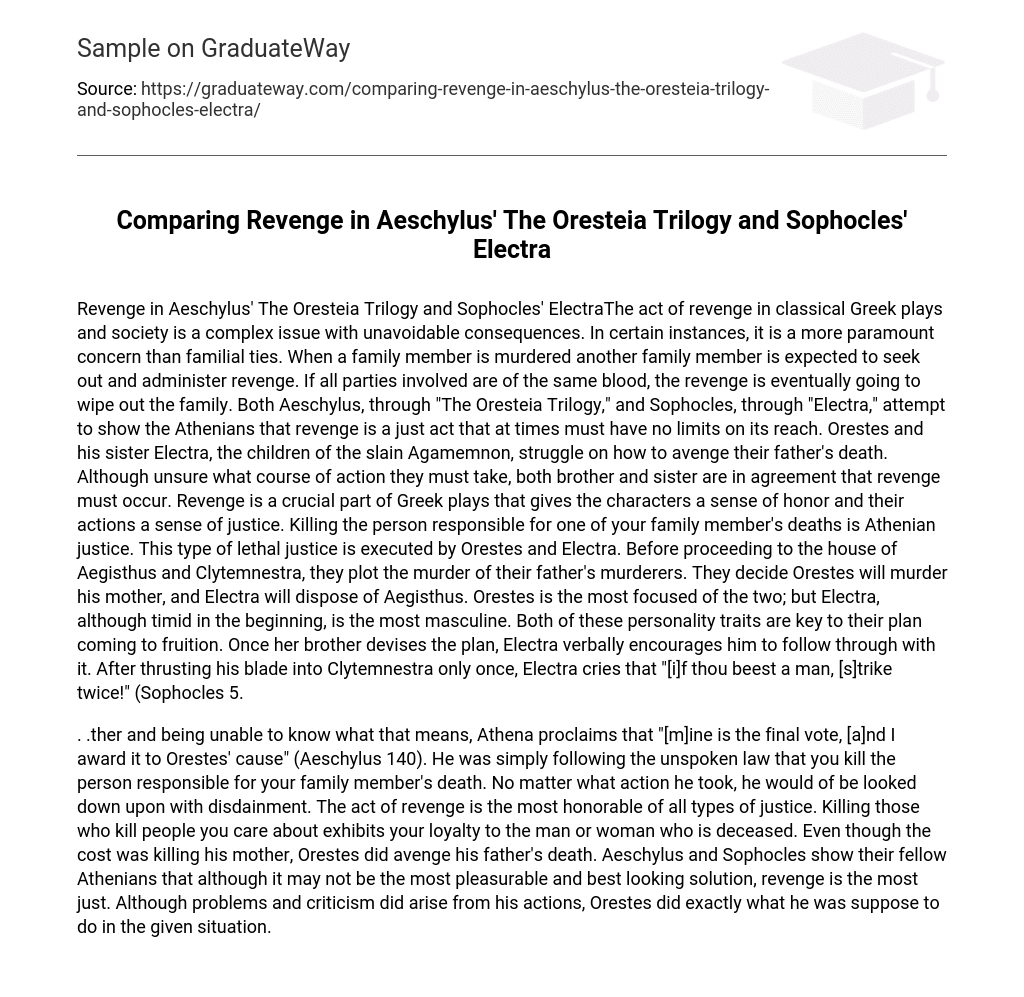The act of revenge in classical Greek plays and society is a complex issue with unavoidable consequences. In certain instances, it is a more paramount concern than familial ties. When a family member is murdered another family member is expected to seek out and administer revenge. If all parties involved are of the same blood, the revenge is eventually going to wipe out the family.
Both Aeschylus, through “The Oresteia Trilogy,” and Sophocles, through “Electra,” attempt to show the Athenians that revenge is a just act that at times must have no limits on its reach. Orestes and his sister Electra, the children of the slain Agamemnon, struggle on how to avenge their father’s death. Although unsure what course of action they must take, both brother and sister are in agreement that revenge must occur. Revenge is a crucial part of Greek plays that gives the characters a sense of honor and their actions a sense of justice.
Killing the person responsible for one of your family member’s deaths is Athenian justice. This type of lethal justice is executed by Orestes and Electra. Before proceeding to the house of Aegisthus and Clytemnestra, they plot the murder of their father’s murderers. They decide Orestes will murder his mother, and Electra will dispose of Aegisthus.
Orestes is the most focused of the two; but Electra, although timid in the beginning, is the most masculine. Both of these personality traits are key to their plan coming to fruition. Once her brother devises the plan, Electra verbally encourages him to follow through with it. After thrusting his blade into Clytemnestra only once, Electra cries that “[i]f thou beest a man, [s]trike twice!” He was simply following the unspoken law that you kill the person responsible for your family member’s death. No matter what action he took, he would of be looked down upon with disdainment.
The act of revenge is the most honorable of all types of justice. Killing those who kill people you care about exhibits your loyalty to the man or woman who is deceased. Even though the cost was killing his mother, Orestes did avenge his father’s death. Aeschylus and Sophocles show their fellow Athenians that although it may not be the most pleasurable and best looking solution, revenge is the most just. Although problems and criticism did arise from his actions, Orestes did exactly what he was suppose to do in the given situation.





